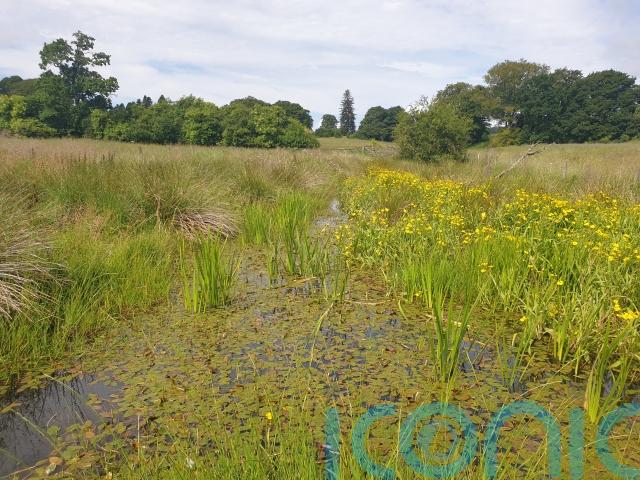
Wetlands created by beavers could help reverse the “dramatic” decline in the numbers of pollinating insects, a study has found.
Researchers at the University of Stirling compared the pollinators found around wetlands made by beavers to those found around artificial ponds.
They found beaver-created wetlands showed a 29% increase in hoverfly species, 119% more hoverfly individuals and 45% more butterflies than those that were artificially created.
The team pointed out hoverflies play a vital role in pollination while butterfly populations are suffering from an ongoing decline – with 80% of species showing either a drop in population or decrease in the number of areas where they are found.
The study also found beaver wetlands “diversify” the flower-foraging opportunities for pollinators, highlighting the role they can play in boosting pollinator numbers within agricultural landscapes.
Study lead Patrick Cook, a PhD researcher at the university’s faculty of natural sciences, said incentives for landowners should be changed to encourage more beaver wetlands.
“Pollinators, such as bees and butterflies, are undergoing widespread and dramatic declines in the size of their populations,” he said.
“This has negative effects on the delivery of pollination, but it is also leading to the loss of some of our most charismatic species from the countryside.
“We urgently need methods to reverse these declines.
“Currently, in the United Kingdom, most agri-environment subsidy schemes support human pond creation, with little financial incentive for landowners to accommodate beaver wetlands – despite the potential boost in pollination services.
“This position needs to change if we are to benefit from the buzz, flutter and hum of pollinators that beaver wetlands promote.”

The team surveyed land around the edges of beaver wetlands and human-created ponds in 2023, counting species and individuals of bees, butterflies, hoverflies and day-flying moths.
They also recorded any interactions between these groups and flowers, with the pollinator surveys repeated six times from May to August at the Bamff Wildland rewilding estate in Perth and Kinross, and two neighbouring private farms.
Mr Cook said: “Our work adds further important evidence of the beneficial effects of beaver wetlands for wildlife, in this instance pollinators.
“If we want to realise these benefits, we need to go beyond removing dams and incorporate these wetlands fully into agri-environment schemes to support landowners with beavers on their land.”
Professor Nigel Willby, professor of freshwater science at the university, said there may be valid reasons to remove a beaver dam “on occasion”.
He said: “But we should remember that for every beaver dam removed a beaver wetland dies, along with a multitude of attached benefits, including for pollinators.”
The findings were welcomed by Sophie Ramsay, manager for Bamff Wildland, who said: “This brilliant new research shows once again that beavers are vital to the agricultural landscape as well as to biodiversity in general.”
The study, Beaver wetlands create a buzz and a flutter for pollinators, was published in the Journal of Applied Ecology, and was funded by the Natural Environment Research Council’s Iapetus programme.
Subscribe or register today to discover more from DonegalLive.ie
Buy the e-paper of the Donegal Democrat, Donegal People's Press, Donegal Post and Inish Times here for instant access to Donegal's premier news titles.
Keep up with the latest news from Donegal with our daily newsletter featuring the most important stories of the day delivered to your inbox every evening at 5pm.